Interview with Carlos Espinosa de los Monteros
Government High Commissioner for Marca España
Madrid - SpainMiscellaneous
Born in 1944, Carlos Espinosa de los Monteros holds a degree in law and business administration and is a permanent trade and economic official for the Spanish central government. He is married and has five children.
In his long career he has been vice-president and chief business officer of the National Institute for Industry (INI), commercial attaché in Chicago, chairman of Iberia, Aviaco, González Byass, Mercedes Benz, Fraternidad Muprespa, the Spanish car manufacturers’ association ANFAC and the Spanish Entrepreneurs Society, and has sat on the boards of Acciona, Schindler and Inditex (where he was also vice-president).
He is a regular contributor to the press and delivers talks and lectures on a variety of subjects. His book Cosas que me enseñó la vida a través de la empresa (Things life taught me through business) was released last year by the Spanish publisher Deusto.
On 2 July 2012, Espinosa de los Monteros was appointed Government High Commissioner for Marca España (which translates literally as the “Spain brand”), a position created by Royal Decree 998/2012 of 28 June. His responsibilities include “planning, stimulating and coordinating the activities of government, government bodies and agencies, and any other public or private entities that play a leading part or are involved in promoting Spain’s economic, cultural, social, scientific and technology-related image abroad”.
The High Commissioner considers his position to be “the most rewarding in all of government,” adding that “there is nothing more thrilling than to promote and champion what I love most - Spain. And I would like to invite all Spanish citizens and anyone who loves Spain to join us in this sometimes challenging task.”
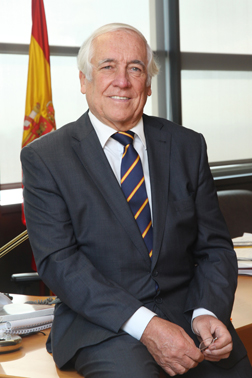

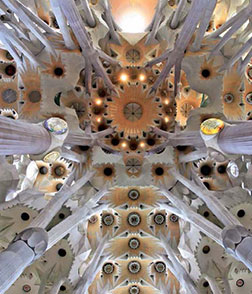
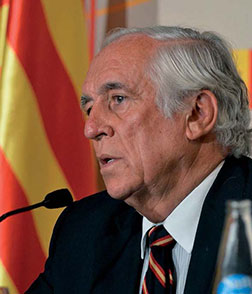
“Marca España should help to get Spain back on track to growth and job creation”
“A good country image bolsters a state’s political, economic, cultural and social position in the international sphere,” says Espinosa de los Monteros. Spain possesses great assets that need to be “shown” to the world and “known” by Spanish people themselves, as “we will be poor advocates of our own worth if we do not believe in what we are and what we have.”
What is Marca España and what role does it play in the current crisis?
Marca España has been formulated as a state policy in the broadest sense -a national project- taking in all levels of government, the private sector and civil society. It is inclusive and integrating, and encompasses all the parties -institutions and other organisations, both public and private- who play a part in projecting Spain’s image whether within or beyond our borders. Marca España should combine and coordinate all their efforts in an efficient way.
Its purpose is to improve Spain’s image both inside the country and abroad, and it is predicated on the idea that a good country image bolsters a state’s political, economic, cultural and social position in the international sphere.
Marca España aims to help Spain get back on track to growth and job creation. Improving our country’s image both here and abroad will contribute to drive exports, attract foreign investment, support the international expansion of Spanish businesses (by strengthening the drag-along effect of large companies on SMEs looking for a niche in the foreign market), improve our access to the financial markets, encourage tourism and generally, help towards economic recovery.

Can you tell us about the action plan and objectives that have been established?
Marca España’s objective for 2020 is to cement an image of Spain as an economic and political power, a country that is traditional and at the same time modern and innovative, robust and reliable, caring, diverse, flexible and open to change
We have now drawn up the first Marca España action plan, the 2013 Programme. This is a preliminary, general plan which basically delineates the nature and characteristics of the Marca España project, lays down the core policy areas and methodological principles and sets the objectives, priorities and guidelines that will serve as the basis for all annual plans, which will be drawn up from this year on. The 2013 Programme’s priority areas are, first and foremost, to contribute to improve Spain’s international image using the instruments at its disposal. Additionally, to further develop economic diplomacy and contribute to the international expansion of Spanish businesses, promote the Spanish language, education and universities, and help to internationalise Spanish culture and cultural industries.
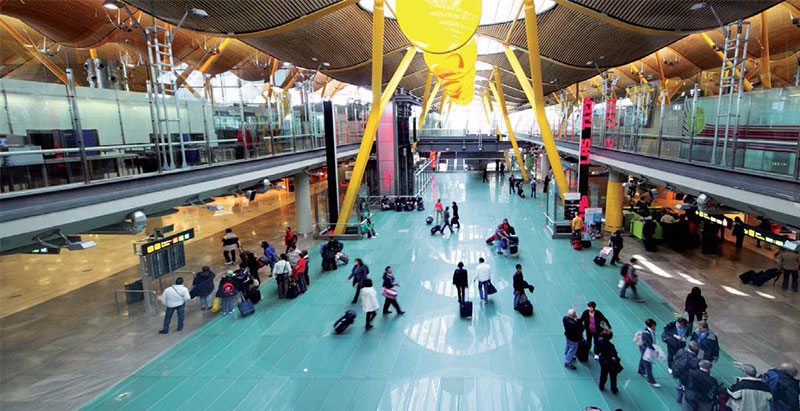
Other priorities include supporting promotion initiatives in the areas of tourism, gastronomy, fashion, sport, artistic heritage and their related industries; stimulating activities that drive R&D; fostering public diplomacy through the network of official exchange institutions, which includes the Casas (Casa África, Casa América, Casa Árabe, Casa Asia and Casa Sefarad-Israel) and Council Foundations (with the US, Mexico, Brazil, India, China, Japan, Russia and Australia); supporting visiting and/or training programmes for opinion leaders, i.e. journalists and other prominent professionals from selected countries, and encouraging the government’s participation in programmes connected with governance, institutional cooperation and technical training; highlighting our national security forces’ participation in international peacekeeping missions; stepping up civil society involvement in communication and promotion campaigns for Marca España; and focusing particularly on major events.
The 2013 Programme also designates 15 priority countries and markets for the purposes of Marca España, which jointly account for 80% of our exports, visiting tourists and mutual investment. We have established specific programmes for these countries which envisage combined action by different public bodies, the object being to leverage synergies and aid towards a more efficient use of their individual resources.
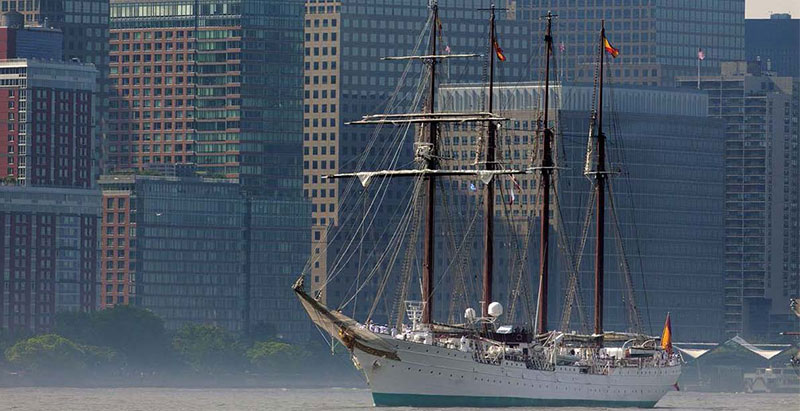
How are Marca España’s activities structured and what instruments can it deploy to achieve its aims?
Marca España’s has established a working structure based on:
- The Marca España Board, which comprises the presidents/directors of the leading stakeholders involved in the project. The Board’s mission is to review and discuss key policy issues.
- Six task groups: Public Diplomacy, Economic Diplomacy, Institutional Stakeholders, Culture, Science and Sport Action, Media, and Civil Society. These are responsible for preparing, reviewing and evaluating our annual action plans and generally all activities related to Marca España. They meet regularly according to an established schedule.
Our sports figures embody values that greatly enhance our image: hard work, self-betterment, solidarity, setting an example for the new generations
In addition to these, the High Commissioner and his Office have been working on a number of other initiatives and directions:
- The Marca España website (www.marcaespana.es), which has been in operation since December 2012 in Spanish and English. It aims to be an inclusive site, a “site of sites” with more than 1,500 links to other institutional websites that are already active in their own areas. Its contents are reviewed and updated on an ongoing basis, so it is a living site. An Editorial Committee has been set up to oversee these activities, with representatives from the different departments and public bodies that contribute content.
- Spanish expatriates and foreign friends of Spain. Bringing on board the members of the “Spanish diaspora” to promote and champion our country image is another key objective. The idea is to create a network, with the assistance of our embassies and consulates, taking in Spanish expatriates and foreign nationals who have family, sentimental or economic ties with Spain and who have a prominent status in their societies and professions, so that they can defend and support our image. The programme is being piloted in Germany and will later be rolled out to France, the US and the UK.
- Volunteers and civil society. A good number of volunteers from the ranks of civil society are already involved in Marca España, ready to collaborate in a completely altruistic spirit. The aim here is to provide backing for this wholly spontaneous movement of support for the principles on which the project’s philosophy is based, which are encapsulated in four messages: integrity, leadership, exportable innovation and superior quality. An association has already been created, last January: the Friends of Marca España Association (www.amigosmarcaespana.com). This is a civil society initiative where people become involved by spreading information through social networks, such as Facebook and Twitter, and blogs, both within Spain and in selected countries. They act as expounders for Spain’s brand and assets.
Are there any similar programmes in other European countries?
All our peers (EU and G20 countries) have been pursuing similar policies for years. We are closely observing the programmes and best practices these countries are following with a view to using them for Marca España.
The Crown: a key asset for Marca España
“While it ultimately falls on the central government to set the policy for Marca España, there is a broad range of other players who also take part in the process,” says Espinosa de los Monteros. Along with the High Commissioner and his Office, Marca España “works closely with all departments, public bodies and private organisations that have had and continue to have a strong influence on Spain’s image, coordinating and guiding their efforts. This also includes autonomous regional governments and local governments,” he adds.
Espinosa de los Monteros acknowledges the Crown’s valuable support for Marca España: “The Crown is a key asset for the project. They have been actively involved right from the start.” He also highlights the help provided by all the public bodies that have a bearing on Spain’s image (ICEX, TURESPAÑA, Instituto Cervantes) and the network of Casas and Council Foundations.
Embassies, consulates and government offices abroad play a particularly important role in the High Commissioner’s opinion. “They report on how Spain is perceived in their respective territorial areas, enhance our country image through a variety of means -including the Ministry of Foreign Affairs and Cooperation’s efficient communication policy- and coordinate various Marca España activities.” Spanish businesses also play a part in the project. For Espinosa de los Monteros, “businesses are both key players and potential beneficiaries of Marca España. One organisation we have worked with in this field is the Spanish Renowned Trade Marks Forum (FMR), which has also given us financial support. We signed a collaboration agreement with them on 20 December of last year.”
Naturally, Marca España is also supported by “private trusts and associations (sportand culture-related, think tanks) and civil society as a whole”. Another institution worthy of note is the Elcano Royal Institute, a think tank that has set up its own Marca España Observatory “to gauge Spain’s image in the world, including both its strengths and its weaknesses, across the different regions and over time.”
Lastly, the Marca España project acknowledges the power of the media to spread its values and messages. “We have concluded agreements with the public radio and television corporation RTVE and the news agencies EFE (public) and Europa Press (private). Numerous media groups and agencies have covered Marca España contents: ABC-Vocento, El País/Prisa, El Mundo/Unidad Editorial, and many other Spanish and international media outlets. We will continue to work hard to make sure the Marca España message and philosophy and Spain’s image abroad are conveyed appropriately.”
A good number of volunteers from civil society are already involved in Marca España, ready to collaborate in a completely altruistic spirit
Spain’s image abroad
What is the perception of Spain outside? What kind of image do we want to convey?
Spain’s image abroad is better than we think. Admittedly, we excel in the “soft aspects” of our brand (quality of living, culture, sport, artistic heritage and so on) but we are not seen to perform as well in areas related to technology, innovation, productivity and the like. These aspects must be the focus of much of our work. The results of Marca España will become apparent in the medium and long term. The objective for 2020 is to cement an image of Spain as an economic and political power, a country that is traditional and at the same time modern and innovative, robust and reliable, caring, diverse, flexible and open to change. This reduced group of values are synthesised into three key attributes: ingenuity/innovation, diversity/plurality, reliability/trustworthiness. Several branding agencies including Interbrand and the Reputation Institute are advising us in this respect.
Spain’s image abroad is better than we think
Which stereotypes should and should we not feel proud of?
We should not cast off stereotypes -they are difficult to change, anyway- that portray us as a friendly country of good-food-loving people, the birthplace of flamenco music - incidentally, flamenco is recognised by UNESCO as part of the world intangible cultural heritage and enjoys huge success outside of Spain; a country with stunning beaches and a fantastic climate, to name just a few examples. But we do need to use these stereotypes to our advantage in order to show another side of Spain that is also real but less well known: a country that is at the leading edge of numerous technology and productive industries. People who are as hardworking as our peers or even more. A caring, reliable country.
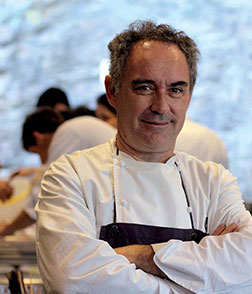
Getting to know Spain’s strengths
Espinosa de los Monteros believes Spain has great strengths, some of them hidden, which the world should know about:
- “We have shown the world that we are a dynamic, courageous, energetic people with an undeniable talent for artistic and literary creation, as well as for team and individual sports.”
- “We are creative, innovative and, at the same time, respectful of our heritage and traditions.”
- “We are still a major economy at the European and global levels. We are leaders in many productive and technology industries.”
- “We have highly dynamic companies, many of which are at the cutting edge of their respective industries.” “We are world leaders in some areas of R&D.” “We use the second most widely spoken language in the world by number of speakers (native speakers, limited-proficiency speakers and speakers of Spanish as a foreign language) behind Mandarin Chinese, and the second language of international communication.”
- “We are a world power in arts and culture (second in the UNESCO list of world artistic and historical heritage sites) and in the area of the environment and the biosphere (second in the world by the number of UNESCO Biosphere Reserves).”
- In the area of tourism, Spain is the “world’s first holiday destination, the fourth tourist destination by number of visitors (after the US, France and, recently China), the secondlargest receiver of tourism revenues (after the US and ahead of France, Italy, China and Germany) and the third destination by number of international congresses.”
- “We are world leaders in food and gastronomy.”
- “A sports global power.”
- And lastly, “we are a caring country at the family, community and global levels (world leaders for transplants, for instance).“ ”Despite the retrenchment of our international cooperation prompted by the prevailing economic situation, the Spanish International Cooperation Agency (AECID), which has reached its 25th anniversary in 2013, continues to carry out an outstanding job, as do other institutions such as the Blind People’s Organisation (ONCE), the Catholic Church charity Caritas, the Red Cross and the Food Bank Federation (FESBAL).”
Sport is a key element of Marca España. How are our sport stars helping to strengthen Spain’s image abroad?
In a very positive way indeed. Some of them, like Rafa Nadal and the Spanish national football team, are honorary ambassadors for Marca España. Our sports figures embody values that tremendously enhance our image: hard work, self-betterment, solidarity, setting an example for the new generations. In addition to this, we have sizeable sports industries. We are one of the largest destinations in the world for sports tourism.
The enemy is in-house
Spain has great virtues and opportunities. Why do we hold ourselves in such low esteem? Are Spanish people the biggest enemies of the Spain brand?
We still fall prey to a certain inferiority complex when it comes to focusing attention on our own strengths, often because people simply do not know about them. This is not the case in other countries
Without intending to gloss over our shortcomings -which, by the way, are not exclusive to Spain- we still fall prey to a certain inferiority complex when it comes to focusing attention on our own strengths, often because people simply do not know about them. This is not the case in other countries. We have recently published a brochure entitled Spain´s Positioning. Leadership Key Factors, which has been translated into English, French and Chinese, and will soon be translated into Japanese. It is available for download on the Marca España website (www.marcaespana.es). I strongly recommend everyone to read it because it is surprising to see how many Spanish companies are world and regional leaders (in Europe and Latin America) in their respective industries. People are probably more aware of our other fortes, such as sport, artistic heritage, food, tourism.
But Marca España’s primary mission is to uphold and strengthen its inspiring principles and values within Spain. We will hardly be able to stand up for them if we do not believe in what we are and what we have.
How do ordinary men and women in the street contribute to create the Spain brand?
Marca España’s primary mission is to uphold and strengthen its inspiring principles and values within Spain. We will hardly be able to stand up for them if we do not believe in what we are and what we have
The Spain brand cannot be built without everyone’s effort and contribution. Civil society has been involved in the project from the outset. A significant number of people have offered to collaborate with Marca España in a completely altruistic spirit by spreading information, particularly via the social networks. They have set up the Friends of Marca España Association(www.amigosmarcaespana.com) and other networks in Spain and in selected countries. They act as expounders for Spain’s brand and assets.
The results of the Reputation Institute’s 2013 Country RepTrak report indicate that Spain’s reputation has lost two positions. What are the reasons for this drop?
There is no doubt that the economic crisis is not helping our international image. Added to this, some nationalist sentiments have become radicalised. This is having a greater effect than other internal problems which, despite appearances, do not have such a significant effect on our image abroad. Having said this, I believe we will recover the lost ground.
Marca España will be releasing a detailed map of Spain’s strengths and weaknesses in 2014, based on a comprehensive study of the leading general and sector-specific international rankings and indexes, which we have been working on with Deloitte for some months.
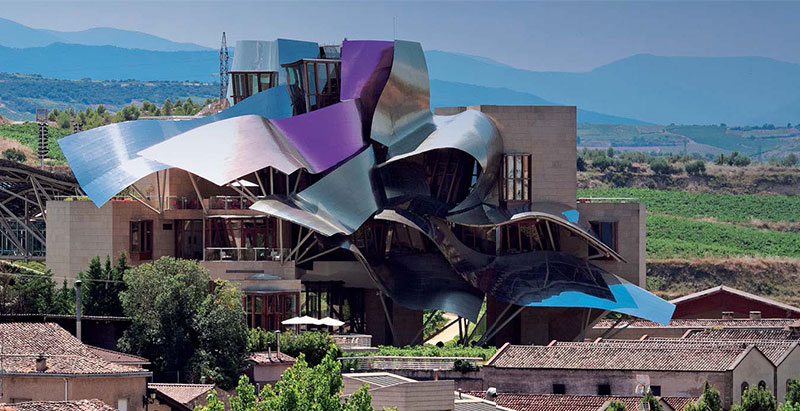
Challenging stereotypes
Going back to the subject of stereotypes, one of them bears particularly heavily on our economy, namely that Spanish are not competitive. To what extent is there any truth in this?
We have achieved great improvement in this area over the last few years. Today, our companies are on a par with those of our main partners in terms of competitiveness.
Are we getting better at “selling” Spain abroad?
Yes, most definitely. Many businesses have been able to maintain sales and profits at adequate levels by going international. This has enabled them to keep their employees and survive in these difficult times. Many of our leading companies have succeeded in conquering the international markets. Today they are standard-bearers for Marca España. Some SMEs have benefited from this international expansion process -through an interesting drag-along effect- but the same cannot be said for most. This is another aspect where we are making progress. The latest figures for Spanish exports show excellent growth - we are currently leading the eurozone.
Lastly, is it easier to manage a business or to change a country’s image?
Neither is an easy task. Changing a country’s image, which is intangible by definition, depends on many variables and involves many different players. This means they must be particularly efficient at interacting with one another and acting in a coordinated manner. Obviously, the results are not always immediately forthcoming.
The role of insurance
“We have a modern, competitive industry,” says Espinosa de los Monteros about the Spanish insurance business and its role in the current situation. According to the Government High Commissioner for Marca España, “some companies, like MAPFRE, which is very strong internationally, are contributing to enhance Spain’s image a great deal.”



